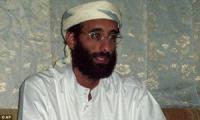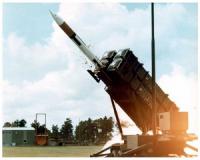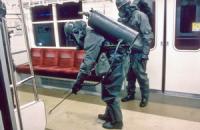-
Vietnam War: Who was right about what went wrong – and why it matters in Afghanistan
The ghosts of the Vietnam War no doubt hovered over a recently assembled conclave of President Donald Trump’s advisers as they deliberated over the deteriorating situation in Afghanistan. In the Vietnam era, as today, the United States found itself engulfed in a seemingly never-ending war with mounting costs, unclear goals, and few signs of success. In both Vietnam and Afghanistan, successive presidents faced much the same options: Withdraw, decisively escalate, or do just enough to avoid losing. Like his predecessors in both wars, Trump chose the middle path – incremental escalation with no clear exit plan (what Daniel Ellsberg, in reference to the Vietnam War, called the “stalemate machine”). How can we to explain the seeming preference of U.S. presidents for muddling through – whether in Afghanistan or, fifty years ago, in Vietnam? It may be that the logic of the stalemate machine is built into the very concept of limited war. Or that it is a predictable consequence of how presidents manage the constraints posed by American politics. In any case, the histories of U.S. military involvements in Vietnam and Afghanistan should serve as warnings to future presidents who might be tempted to again jump onto the treadmill of perpetual war.
-
-
The Invisible Threat
In 1995, during the Monday morning rush hour in the Tokyo subway, thousands of commuters inhaled toxic nerve gas left leaking from little plastic bags. Twelve people died, and thousands more were injured in the deadliest attack in Japan since the Second World War. The attack was the work of Japanese cult Aum Shinrikyo. The cult members, many of them students of science, were unsuccessful in launching a true biological attack. They were clumsy and unfocused and the tools too complex to pull off with ease. But those efforts were in the mid-1990s, and the tools for creating bioattacks have become more accessible. The Trump administration, however, is threatening to cut the funding for science needed to defend against such attacks.
-
-
Germany’s newly elected populist, far-right AfD: We will fight an “invasion of foreigners”

Leaders of the populist, nationalist AfD party, which entered the Bundestag for the first time after Sunday federal election, have pledged to fight an “invasion of foreigners” with its new MPs. Alexander Gauland, speaking in Berlin the morning after the election results came in, said his party would “uncompromisingly address” immigration, an issue the party has campaigned on since late 2015. “One million people – foreigners – being brought into this country are taking away a piece of this country and we as AfD don’t want that,” Gauland told a press conference late Sunday. “We say we don’t want to lose Germany to an invasion of foreigners from a different culture. Very simple.”
-
-
Anwar al-Awlaki’s sermons, lectures still accessible on YouTube

Anwar al-Awlaki, the U.S.-born leader of external operations for al-Qaeda in the Arabian Peninsula (AQAP), was targeted and killed by a U.S. drone strike on 30 September 2011. Yet, six years later, Awlaki continues to radicalize and inspire Westerners to terror, due to the ongoing presence and availability of his lectures online, including on YouTube. As of 30 August 2017, a search for Anwar al-Awlaki on YouTube yielded more than 70,000 results, including his most incendiary lectures.
-
-
There is almost no research on what distinguishes potential terrorists: Study
A recent analysis of the existing research on factors associated with an individual’s risk for engaging in terrorist activity highlights how little we know about these factors and the need for additional research in this area. “It’s important to have a better understanding of what distinguishes potential terrorists from individuals who pose little or no risk of becoming terrorists, whether we’re talking about Middle Eastern terrorist organizations or domestic terrorists in the United States,” says one of the study’s authors.
-
-
Soft target, hard problem: Keeping surface transportation secure
Maintaining security on the U.S. surface transportation systems takes significant resources and manpower, both which tend to be in short supply. What if there were a way to detect potential threats in bags or on persons from the moment they entered the subway? What if there was a way to know the path individuals take as they move through the system, and to relay that information to transit police in real-time?
-
-
Israel shot down Iranian-supplied Hezbollah drone in border area

Israel has shot down what an Iranian-supplied Hezbollah drone as it was about to cross the Syrian border into Israel. Analysts note that Hezbollah launched the drone only hours before Prime Minister Benjamin Netanyahu is to address the UN General Assembly. In his speech he is expected to highlight the destabilizing consequences of Iran’s growing influence in the Middle East. “We have seen a significant recent rise in [Hezbollah’s] drone capability,” an Israeli military source said.
-
-
Argentinian prosecutor to review mounting forensic evidence that proves Nisman was murdered

An Argentinian prosecutor will assess the findings of a group of forensic analysts who discovered more evidence indicating that Argentinian prosecutor Alberto Nisman was murdered. Nisman, who investigated the ties between Iran and the July 1994 bombing of a Jewish community center in Buenos Aires, as well as a cover up by the previous Argentine government of Iran’s role in the attack, was found dead with a bullet wound to the head in January 2015. His death came hours before he was scheduled to appear before a closed session of the Argentinian Congress.
-
-
Cleaning up subways after release of biological warfare agent such as anthrax

If you’re like most people, you don’t spend much time thinking about what would happen if anthrax was released into your local subway system. But Sandia Lab engineer Mark Tucker has spent much of the past twenty years thinking about incidents involving chemical or biological warfare agents, and the best ways to clean them up. Tucker’s current project focuses on cleaning up a subway system after the release of a biological warfare agent such as anthrax.
-
-
Economic decay within Islamic State
A new report paints a bleak picture of economic life under the Islamic State. The report’s authors estimate that the Islamic State contributed to a 23 percent reduction in the GDP of cities under its control, based on novel applications of satellite-derived data.
-
-
Islamophobia: racism mixed with cultural intolerance, not merely religious bias
Islamophobia represents a form of racism mixed with cultural intolerance as a whole, rather than simply intolerance of Muslims and Islam, according to a new study. The author refutes the argument that Islamophobia is a form of religious bias that oppresses U.S. Muslims on the grounds that Islam is nefarious and antithetical to American values. “We often hear that because Muslims are not a race, people cannot be racist for attacking Muslims,” Rice University’s Craig Considine says. “This argument does not stack up. It is a simplistic way of thinking that overlooks the role that race plays in Islamophobic hate crimes.”
-
-
Can taking down websites really stop terrorists and hate groups?
Racists and terrorists, and many other extremists, have used the internet for decades and adapted as technology evolved, shifting from text-only discussion forums to elaborate and interactive websites, custom-built secure messaging systems and even entire social media platforms. Recent efforts to deny these groups online platforms will not kick hate groups, nor hate speech, off the web. In fact, some scholars theorize that attempts to shut down hate speech online may cause a backlash, worsening the problem and making hate groups more attractive to marginalized and stigmatized people, groups, and movements. The tech industry, law enforcement, and policymakers must develop a more measured and coordinated approach to the removal of extremist and terrorist content online. The only way to really eliminate this kind of online content is to decrease the number of people who support it.
-
-
U.K. raises terror threat level after London terrorist attack
British police is searching for those responsible for an IED explosion on a London subway train. Twenty-nine people were injured in the attack. Counterterrorism experts said the IED may have malfunctioned, thus averting a larger catastrophe. British prime minister Theresa May raised the country’s terror threat level to critical, meaning an attack is expected soon.
-
-
Lax policies governing dual-use research, scientists unaware of research’s biosecurity implications
The National Academies of Sciences has examined policies and practices governing dual-use research in the life sciences – research that could potentially be misused to cause harm – and its findings identify multiple shortcomings. While the United States has a solid record in conducting biological research safely, the policies and regulations governing the dissemination of life sciences information that may pose biosecurity concerns are fragmented. Evidence also suggests that most life scientists have little awareness of biosecurity issues, the report says, stressing the importance of ongoing training for scientists.
-
-
Map shows how to disable dangerous bioweapon
The Centers of Disease Control (CDC) ranks tularemia as one of the six most concerning bioterrorism agents, alongside anthrax, botulism, plague, smallpox and viral hemorrhagic fever. And Russian stockpiles of it likely remain. American scientists studying F. tularensis recently mapped out the complex molecular circuitry that enables the bacterium to become virulent. The map reveals a unique characteristic of the bacteria that could become the target of future drug development.
-
More headlines
The long view
What Does Netflix’s Drama “Adolescence” Tell Us About Incels and the Manosphere?
While Netflix’s psychological crime drama ‘Adolescence’ is a work of fiction, its themes offer insight into the very real and troubling rise of the incel and manosphere culture online.
